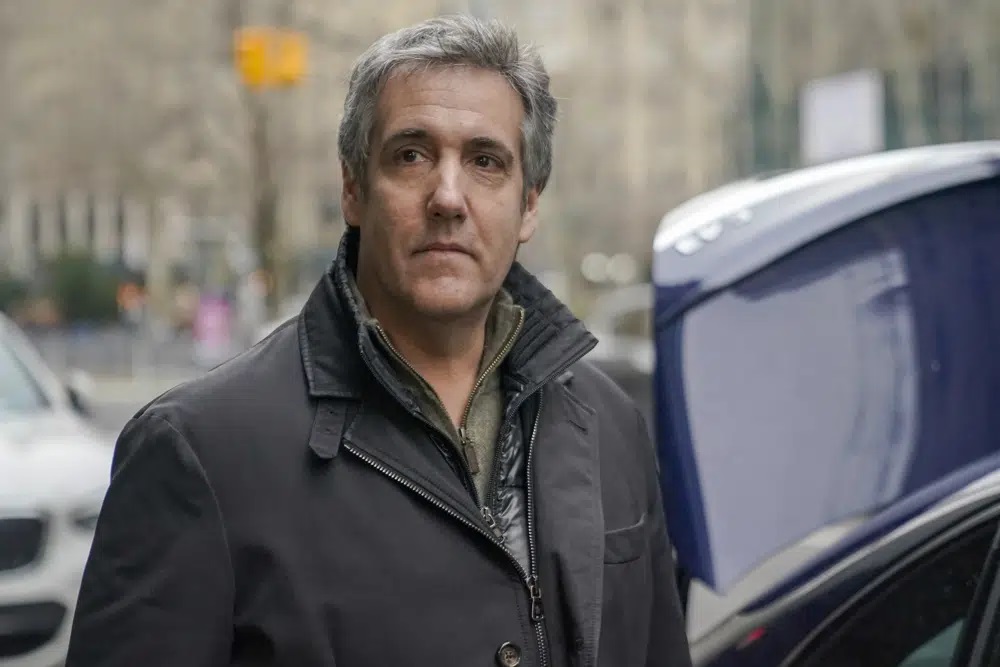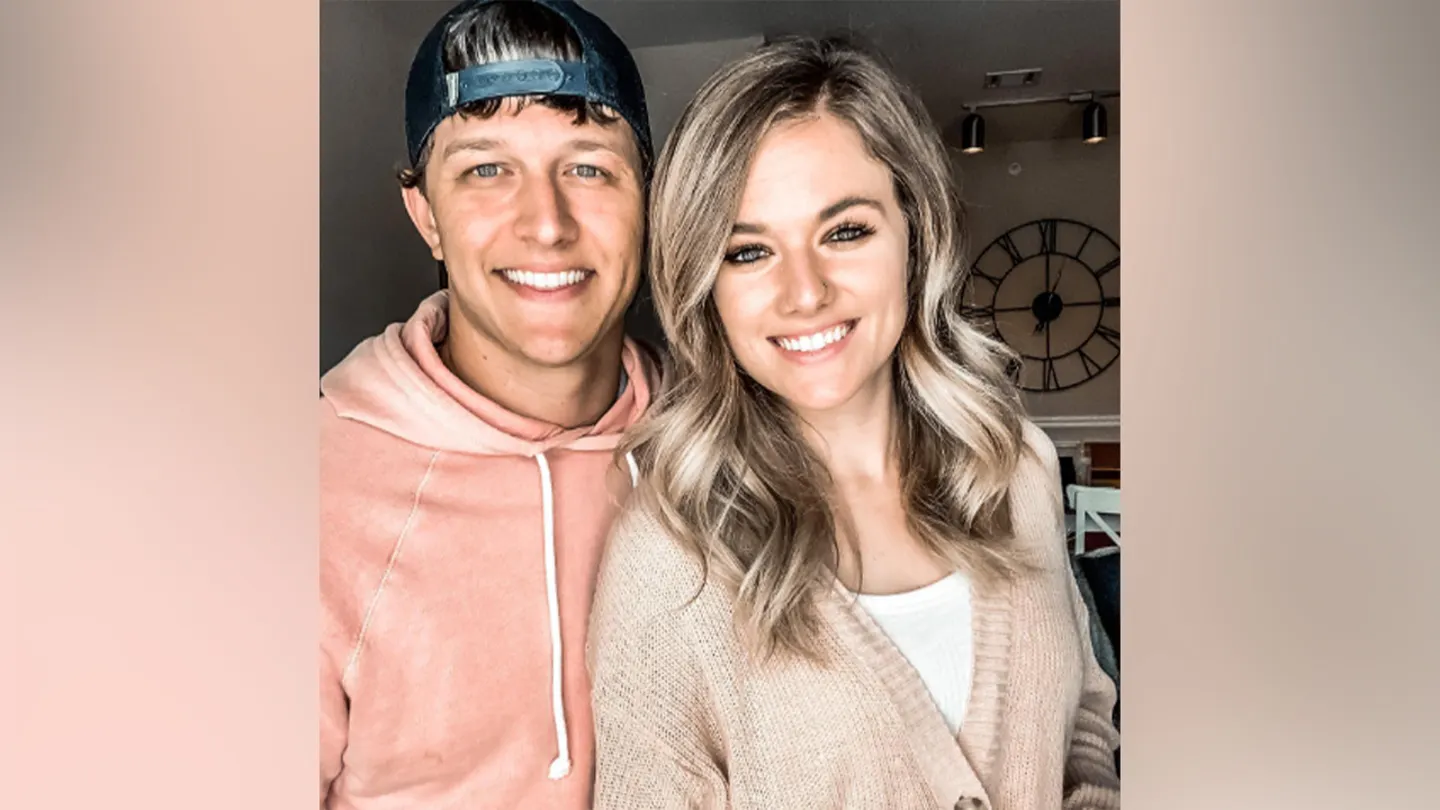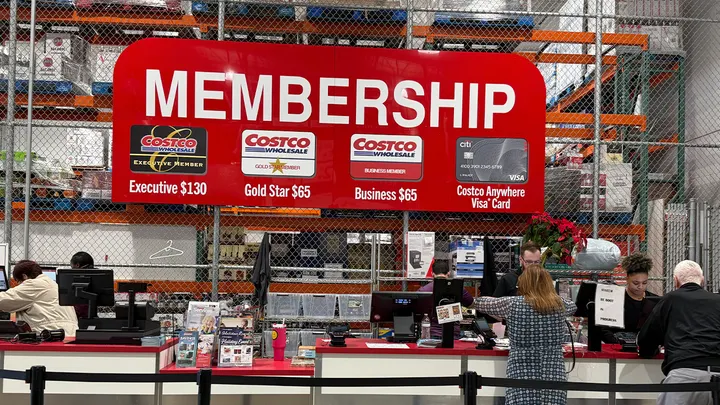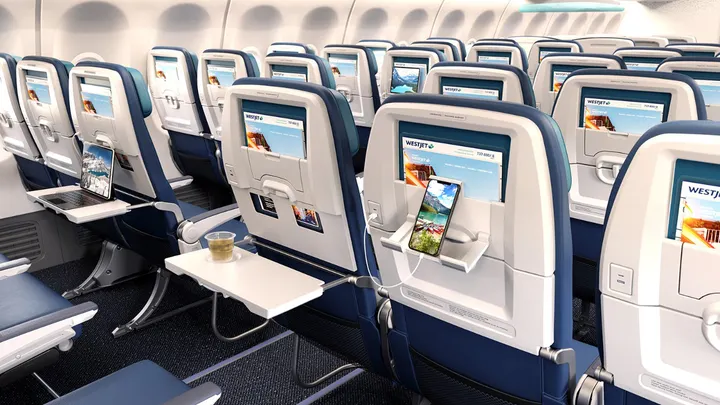Donald Trump’s former lawyer and fixer Michael Cohen is scheduled to testify Monday before a Manhattan grand jury investigating hush-money payments made on the former president’s behalf, two people familiar with the matter told The Associated Press. They were not authorized to speak publicly about grand jury proceedings and did so on condition of anonymity.
Cohen is a key witness in Manhattan District Attorney Alvin Bragg’s investigation and his testimony is coming at a critical time, as prosecutors close in on a decision on whether to seek charges against Trump. Prosecutors sometimes save their most important witnesses until the end stages of a grand jury investigation.
Cohen has been meeting regularly with Manhattan prosecutors in recent weeks, including a day-long session Friday to prepare for his appearance before the grand jury, which has been hearing evidence in the matter since January.
Cohen declined to comment to reporters as he left the meeting, saying he’d be “taking a little bit of time now to stay silent and allow the D.A. build their case.”
The Manhattan district attorney’s office, which thus far has declined to comment on the investigation, also declined to address whether Cohen would testify before the grand jury.
Trump continued to lash out at the probe on social media Friday, calling the case a “Scam, Injustice, Mockery, and Complete and Total Weaponization of Law Enforcement in order to affect a Presidential Election!”
Prosecutors appear to be looking at whether Trump committed crimes in arranging the payments, or in how they were accounted for internally at Trump’s company, the Trump Organization. One possible charge would be falsifying business records, a misdemeanor unless prosecutors could prove it was done to conceal another crime.
No former U.S. president has ever been charged with a crime.
Prosecutors this week invited Trump to testify before the grand jury — another sign that phase of the investigation is winding down. Inviting the subject of an investigation to appear before a grand jury is typically one of the last steps before a potential indictment.
Trump has the right to testify under New York law, though legal experts say he is unlikely to do so because it wouldn’t benefit his defense and he’d have to give up a cloak of immunity that’s automatically granted to grand jury witnesses under state law.
Cohen served prison time after pleading guilty in 2018 to federal charges, including campaign finance violations, for arranging the payouts to porn actor Stormy Daniels and model Karen McDougal to keep them from going public. Trump has denied the affairs.
Cohen paid Daniels $130,000 through his own company and was then reimbursed by Trump, whose company logged the reimbursements as “legal expenses.” McDougal’s $150,000 payment was made through the publisher of the supermarket tabloid the National Enquirer, which squelched her story in a journalistically dubious practice known as “catch-and-kill.”
The Trump Organization “grossed up” Cohen’s reimbursement for the Daniels payment for “tax purposes,” according to federal prosecutors who filed criminal charges against the lawyer in connection with the payments in 2018. Cohen got $360,000 plus a $60,000 bonus, for a total of $420,000.
Federal prosecutors said during Cohen’s criminal case that Trump was aware of the payments to the women. The U.S. attorney’s office in New York, however, declined at the time to seek a criminal charge against the then-sitting president.
Cohen, now estranged from Trump, has met with prosecutors 20 times through several iterations of the hush-money probe. In January, he gave his cell phones to Manhattan prosecutors so they could extract evidence, including voice recordings of conversations he had with a lawyer for Daniels — whose real name is Stephanie Clifford — as well as emails and text messages.
Other members of Trump’s inner circle have met with Manhattan prosecutors in recent weeks, including his former political adviser Kellyanne Conway and former spokesperson Hope Hicks.
Michael Cohen to testify Monday in Trump hush-money probe




